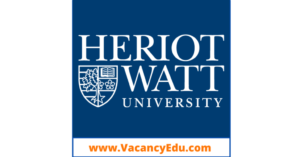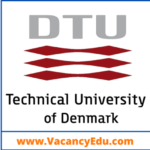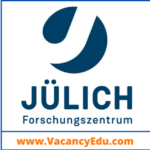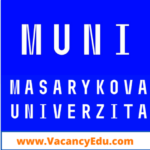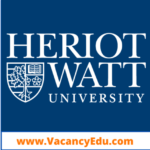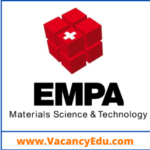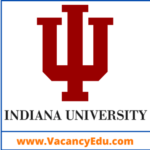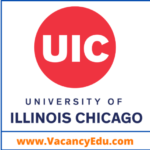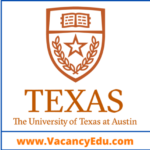Heriot-Watt University, Edinburgh, United Kingdominvites online Application for various Postdoctoral Fellowship in their different Departments. We are providing a list of Postdoc Fellowship positions available at Heriot-Watt University, Edinburgh, United Kingdom
Eligible candidate may Apply as soon as possible.
(01) Postdoctoral Fellowship Position
Postdoc Fellowship Position summary/title: Research Associate in Deep Learning for Computational Imaging in Astronomy, and Beyond
The Biomedical and Astronomical Signal Processing (BASP) laboratory at Heriot-Watt University Edinburgh (HWU), headed by Professor Yves Wiaux, is recruiting a postdoctoral researcher in computational imaging.
The BASP laboratory is developing cutting-edge research on all aspects of computational imaging, from theory and algorithms, to applications in astronomy and medicine. Dr Wiaux is a Professor in the School of Engineering and Physical Sciences at HWU. He is also Honorary fellow at the (UoE) School of Informatics, and Academic Guest at the (EPFL) Signal Processing Laboratories.
The position is open in the context of a large research project aiming to develop a new generation of computational imaging algorithms intended to deliver simultaneously precision, robustness, efficiency, and scalability of the image formation process. The algorithms will be developed leveraging cutting-edge deep learning and optimisation techniques, as well as high-performance computing implementations. They will be validated for applications in both radio astronomy and magnetic resonance imaging in medicine.
Led by Prof. Wiaux, the project is supported by a unique team of international partners: Prof. Pesquet from the Digital Vision Centre at Université Paris-Saclay (CVN), Prof. Pock from the Institute of Computer Graphics and Vision at Graz University of Technology (ICG), Prof. Thiran from the EPFL Signal Processing Laboratories (LTS5), Mr Jackson at the UoE Parallel Computing Centre (EPCC), Prof. Smirnov from the South African Radio Astronomy Observatory (SARAO), Dr Akiyama from MIT Haystack Observatory (Haystack), Dr van Heeswijk from the Radiology Department of Lausanne University hospital (CHUV).
Deadline : 12/04/2024
(02) Postdoctoral Fellowship Position
Postdoc summary/title: Research Associate in Advanced Platform for Integrated Quantum Photonics Devices
The Quantum Photonics Laboratory seeks a talented and motivated scientist to start a new line of research on integrated platforms for novel quantum devices using rare-earth doped crystals for quantum memory applications. Significant goals include
- the characterization of the optical/spin properties of different crystals,
- manipulation and optimization of their electronic and spin coherence through complex optical and MW sequences,
- implementation of quantum memory protocols in both bulk crystals and waveguide structures,
- integration of MW circuits.
The project is expected to lead to high impact scientific publications and to technological developments related to integrated quantum photonic devices for quantum communication and computation. The work will be conducted in the framework of a recently funded EPSRC grant involving world-leading partners working on waveguide fabrication and electrical engineering. It will be carried out under the supervision of Prof Margherita Mazzera, who is principal investigator of the funded project.
For more information, please send enquiry emails to Prof Margherita Mazzera (m.mazzera@hw.ac.uk).
The application requires a CV and a cover letter explaining the motivation/interest in this project to be submitted through the university portal. Candidates are invited to specifically highlight in their applications how they fulfil the essential criteria for the post, listed below.
Deadline : 11/08/2024
Looking for more Postdoctoral Positions Click Here
(03) Postdoctoral Fellowship Position
Postdoc Fellowship Position summary/title: Postdoctoral Research Associate
Heriot-Watt University is looking to appoint a Post-Doctoral Research Associate to support research on the UKRI-funded TRANSECTS (TRANSitions in Energy for Coastal communities over Time and Space) project. TRANSECTS will apply an interdisciplinary spatial-temporal lens to learn from past marine energy transitions to support and inform future decision-making. Combining natural and social sciences with arts and humanities, TRANSECTS will interrogate the shifts from non-renewable systems of production (whale oil in the 1800s through to offshore oil and gas in the later-1900s) to more sustainable marine renewable energies in the early-2000s (and the competition with transitioning oil and gas via CO2 and hydrogen storage). This post will contribute to the aims of TRANSECTS by identifying the ecological values associated with natural capital (stocks) and ecosystem services (flows) from past, present and future marine energy transitions. This research will take a place-based approach and consider how the stocks and flows identified for our three case study areas (Orkney Islands, East Coast Scotland, Humber Estuary) are interlinked with wider societal benefits and explore how they have affected coastal community resilience.
TRANSECTS is adopting such a natural capital approach to ensure that society’s dependence on natural resources for energy is considered when assessing the broader impacts of marine energy transitions. Showing the ecological values, and spatio-temporal changes, of particular habitats and species within marine energy transitions makes them visible and facilitates their inclusion within marine decision-making processes.
The successful candidate will be hosted in the Institute of Life and Earth Sciences (ILES) at the School of Energy, Geoscience, Infrastructure and Society (EGIS), within Heriot-Watt University in Edinburgh. The ideal candidate will have knowledge in areas related to marine environmental impacts, assessment and management, and experience in GIS and/or applying natural capital approaches. Essential requirements are excellent communication skills, as well as the ability to work both independently and as part of a team. Work activities will vary according to the requirements of the job; however, general responsibilities are typically, but not restricted to, the following:
Strong research ethos, engaging in research activities related to the TRANSECTS project and contributing to the University’s research and outreach profile;
Establishing collaborative research links outside the university via funding councils, industry, business and public bodies (including existing TRANSECTS partners/collaborators);
Representing Heriot Watt University and the TRANSECTS project in a professional capacity, particularly through research dissemination and development e.g. conferences, meetings with project partners.
Deadline : 11/21/2024
(04) Postdoctoral Fellowship Position
Postdoc Fellowship Position summary/title: Postdoctoral Research Associate – TRANSECTS Project
Heriot-Watt University is looking to appoint a Post-Doctoral Research Associate to support research on the UKRI-funded TRANSECTS (TRANSitions in Energy for Coastal communities over Time and Space) project. TRANSECTS will apply an interdisciplinary spatial-temporal lens to learn from past marine energy transitions to support and inform future decision-making. Combining natural and social sciences with arts and humanities, TRANSECTS will interrogate the shifts from non-renewable systems of production (whale oil in the 1800s through to offshore oil and gas in the later-1900s) to more sustainable marine renewable energies in the early-2000s (and the competition with transitioning oil and gas via CO2 and hydrogen storage). This post will contribute to the aims of TRANSECTS by identifying the social and economic benefits and disbenefits associated with natural capital (stocks) and ecosystem services (flows) from past, present and future marine energy transitions. This research will take a place-based approach and consider how the stocks and flows identified for our three case study areas (Orkney Islands, East Coast Scotland, Humber Estuary) are interlinked with wider societal benefits and explore how they have affected coastal community resilience.
TRANSECTS is adopting such a natural capital approach to ensure that society’s dependence on natural resources for energy is considered when assessing the broader impacts of marine energy transitions. Showing the ecological values, and spatio-temporal changes, of particular habitats and species within marine energy transitions makes them visible and facilitates their inclusion within marine decision-making processes.
Deadline : 11/21/2024
(05) Postdoctoral Fellowship Position
Postdoc Fellowship Position summary/title: Postdoctoral Research Associate in Neuromorphic Imaging
This project will investigate the implementation of spiking neural networks (SNNs) on traditional computational platforms and dedicated neuromorphic hardware for accelerating computer vision tasks.
The development of neuromorphic hardware has recently enabled the implementation of fast computational methods for extracting information for sensor data. While originally designed to handle data encoded via temporal series of spikes or events, neuromorphic hardware can now be used to extract information from images or videos at very high-speed, potentially competing with state-of-the-art architectures leveraging GPU processing power.
Deadline : 11/08/2024
Click here for “Postdoc Application Cover Letter Template”
Click here to know “How to write a Postdoc Job Application or Email”
(06) Postdoctoral Fellowship Position
Postdoc Fellowship Position summary/title: Postdoctoral Research Associate in Imaging Flow Cytometry
This project will investigate the implementation and exploitation of computer vision algorithms for detection of analysis of particles and cells within microfluidic devices. This work will be conducted in strong collaboration with the University of Strathclyde where the candidate will regularly perform data collection.
In this project, we will:
- Investigate a series of microfluidic devices to sense and sort particles and cells based on their speed, size, and shape.
- Acquire data using neuromorphic cameras and analyse them using advanced computational (deep learning) methods.
- Use the detection results to analyse the behavior of small, fast moving particles within microfluidics devices.
Deadline : 11/08/2024
(07) Postdoctoral Fellowship Position
Postdoc Fellowship Position summary/title: Postdoctoral Research Associate in Applied Statistics and Computational Imaging
This project is part of the new UK Hub in Quantum Sensing Imaging and Timing (QuSIT), that stands as an international centre of excellence for research and innovation, providing thought leadership, coordination and translation to impact across the quantum landscape in the UK and beyond. QuSIT builds upon a decade of government, institutional and industry investment, unifying expertise from two existing internationally leading Hubs in QT Imaging (QuantIC) and Sensing and Timing, maintaining coherence within the UK landscape, bringing together industry, government, and the international community. This Hub is a crucial vector for the delivery of the National Quantum Strategy, enhancing UK prosperity and national security.
This position aims at addressing computational challenges associated with data acquisition and information extraction from complex sensors and sensor networks. Crucially, uncertainty management and quantification tools are need during the development of new imaging and sensing systems. With the rapid deployment of data-driven methods, repliable uncertainty quantification remains a big challenge that requires the development of principled, mathematical tools. Such tools need to be able to handle a variety of working environments (e.g., dynamic environments), input data (from traditional frame-based data to non-traditional, e.g., event data) and network structures (for sensor networks). In this project, we will investigate Bayesian deep learning approaches to training models under uncertainty for several sensing, imaging and timing applications.
Deadline : 11/29/2024
About Heriot-Watt University, Edinburgh, United Kingdom – Official Website
Heriot-Watt University (Scottish Gaelic: Oilthigh Heriot-Watt) is a public research university based in Edinburgh, Scotland. It was established in 1821 as the School of Arts of Edinburgh, the world’s first mechanics’ institute, and subsequently granted university status by royal charter in 1966. It is the eighth oldest higher education institute in UK. The name Heriot-Watt was taken from Scottish inventor James Watt and Scottish philanthropist and goldsmith George Heriot.
Known for its focus on science and engineering, it is one of the 39 old universities in the UK comprising the second cluster of elite universities after Oxbridge.
Heriot-Watt was established as the School of Arts of Edinburgh by Scottish businessman Leonard Horner on 16 October 1821. Having been inspired by Anderson’s College in Glasgow, Horner established the School to provide practical knowledge of science and technology to Edinburgh’s working men. The institution was initially of modest size, giving lectures two nights a week in rented rooms and boasting a small library of around 500 technical works. It was also oversubscribed, with admissions soon closing despite the cost of 15 shillings for a year’s access to lectures and the library.
The School was managed by a board of eighteen directors and primarily funded by sponsors from the middle and upper classes including Robert Stevenson and Walter Scott. It first became associated with the inventor and engineer James Watt in 1824, as a means of raising funds to secure permanent accommodation. Justifying the association, School Director Lord Cockburn said:
Disclaimer: We try to ensure that the information we post on VacancyEdu.com is accurate. However, despite our best efforts, some of the content may contain errors. You can trust us, but please conduct your own checks too.
Related Posts
- 26 Postdoctoral Fellowship at Technical University of Denmark (DTU), Denmark

- 19 Postdoctoral Fellowship at Forschungszentrum Julich, Germany

- 18 Postdoctoral Fellowship at Masaryk University, Czech Republic

- 04 Postdoctoral Fellowship at Heriot-Watt University, Edinburgh, United Kingdom

- 08 Postdoctoral Fellowship at Saint Louis University, Missouri, USA

- Postdoctoral Fellowship (05) at EMPA, Zurich, Switzerland

- Postdoctoral Fellowship (10) at Indiana University (IU), Bloomington, United States

- Postdoctoral Fellowship (07) at University of Illinois at Chicago, United States

- Postdoctoral Fellowship (13) at University of Texas at Austin, United States


